Commentaries /
October 2023 CPI: Some encouraging news on inflation for the Bank of Canada
October 2023 CPI: Some encouraging news on inflation for the Bank of Canada
Today's Fall Economic Statement is likely to focus heavily on affordability, because that's what everyone is talking about. Which is why the slowdown in headline — and more importantly — core inflation, will be welcome news for the Bank of Canada.



Stephen Tapp
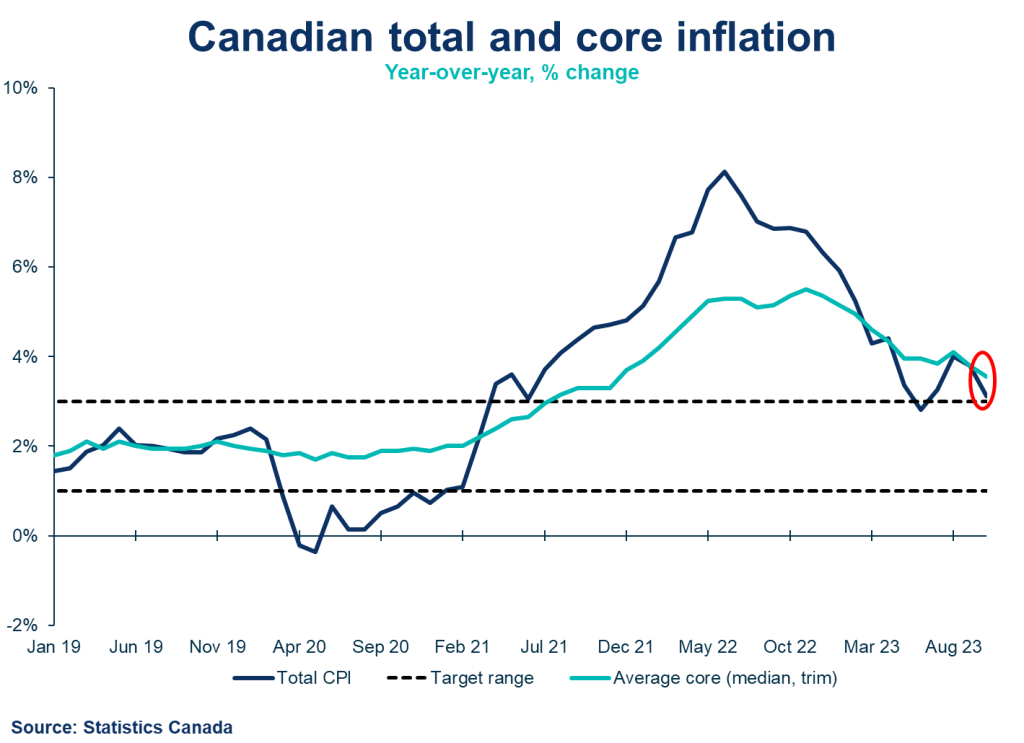
Today’s Fall Economic Statement is likely to focus heavily on affordability, because that’s what everyone is talking about. Which is why the slowdown in headline — and more importantly — core inflation, will be welcome news for the Bank of Canada. This ensures that the Bank will hold rates at its next meeting on December 6. But the devil is in the details — main consumer affordability pain points remain high, such as food and shelter costs. We’ll need to see much more progress on those fronts, along with an improved outlook for the overall economy, before the sentiment among Canada consumers improves.
Stephen Tapp, Chief Economist, Business Data Lab, Canadian Chamber of Commerce
KEY TAKEAWAYS
Overall
- Headline inflation decelerated to 3.1% year-over-year in October —down noticeably from 3.8% in September, and largely due to lower gasoline prices. This outcome was expected by financial mark.
- On a seasonally-adjusted basis, the CPI actually edged down by 0.1% — the first outright decline since May 2020.
- Importantly and encouragingly, both the Bank of Canada’s core inflation measures continued to slow, averaging 3.6% year-over-year, down from 3.8% a month earlier. Moreover, these shorter-term measures (the closely-watched three-month moving average) finally hit the top of the Bank’s target range at 3.0% (down from 3.7%).
CPI Components
- Lower gas prices were the main contributor to lower headline inflation in October; they were down 8% year-over-year. Excluding gas, prices rose 3.6%.
- That said, the biggest problem areas driving consumers’ affordability concerns remain:
- Shelter prices, which rose further to 6.1% from 6.0%, primarily reflecting accelerating rent prices (8.2%), and the largest increase in property taxes in 31 years; and
- Food inflation, which slowed to 5.6% from 5.9%.
- Goods inflation fell to 1.6% (from 3.6%, again largely from lower gas prices), while services inflation picked up to 4.6% (from 3.9%, driven by higher prices for rents, property taxes and travel).
Provincial Inflation
- Inflation slowed in all provinces in October. It is now highest in Quebec (4.2%) and lowest in PEI (1.7%).
Implications for the Bank of Canada
- Markets fully expect the Bank of Canada to hold rates on December 6, and are now looking for interest rate cuts, beginning as early as March 2024.
SUMMARY TABLES
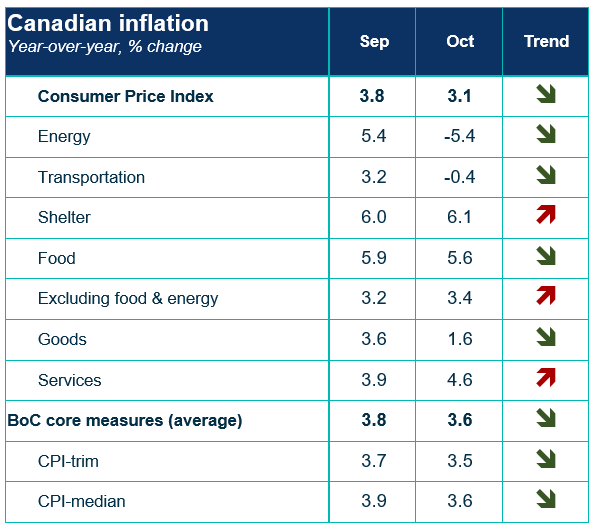
Sources: Statistics Canada; Bank of Canada; Canadian Chamber of Commerce Business Data Lab
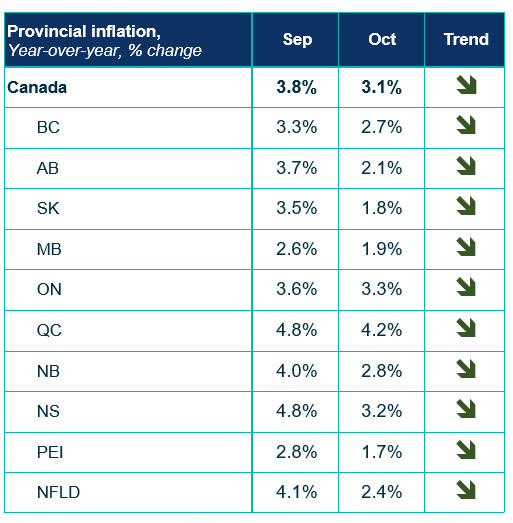
CPI CHARTS
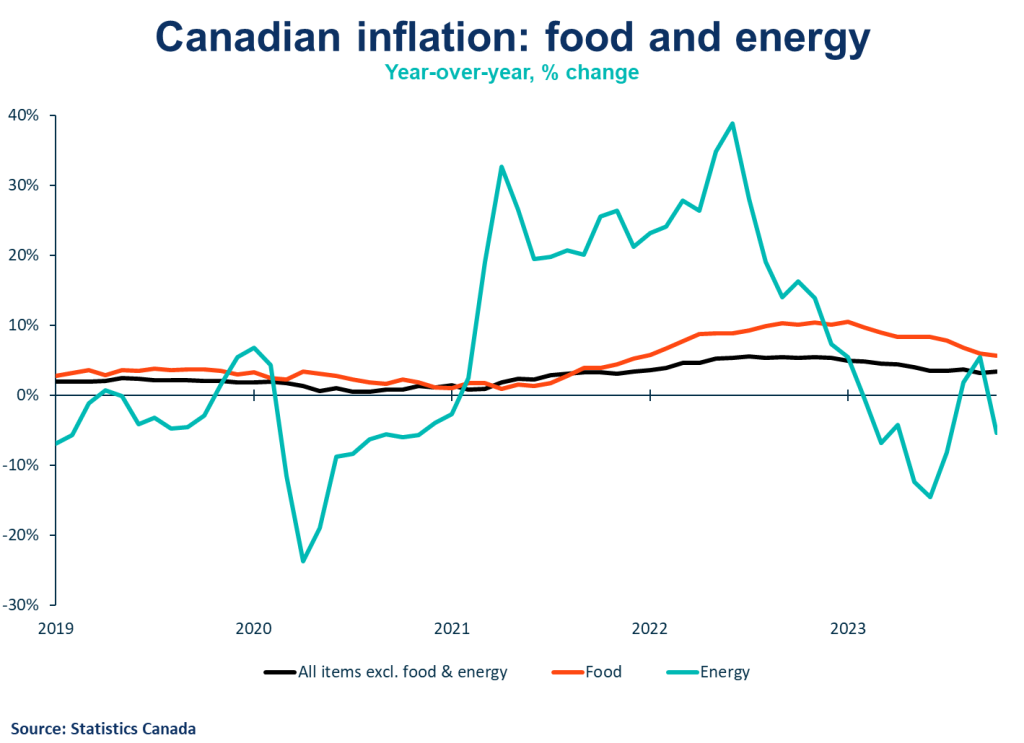
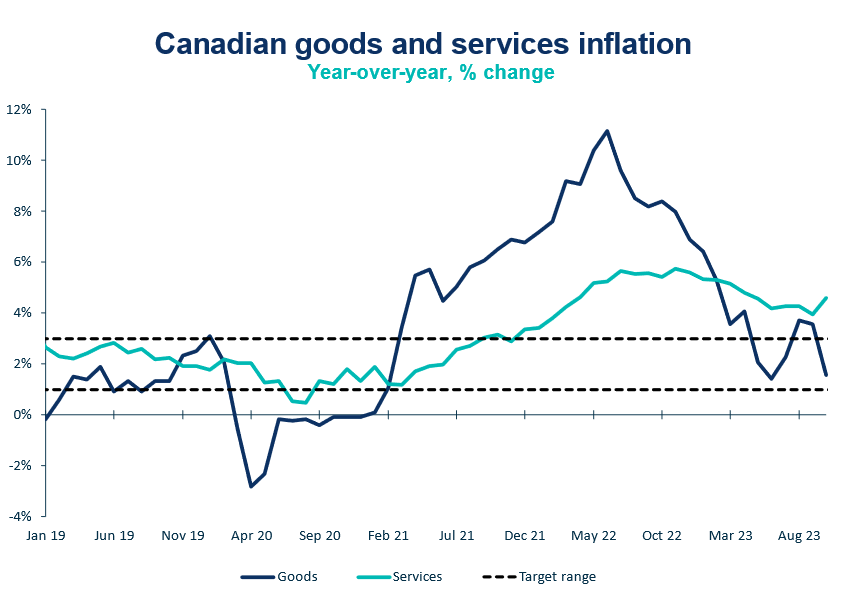
Other Commentaries

Oct 19, 2022
September 2022 Consumer Price Index data: Food and services prices still rising, no progress on core inflation

Sep 20, 2022
August 2022 Consumer Price Index data: Finally some good news on Canadian inflation.

Aug 16, 2022